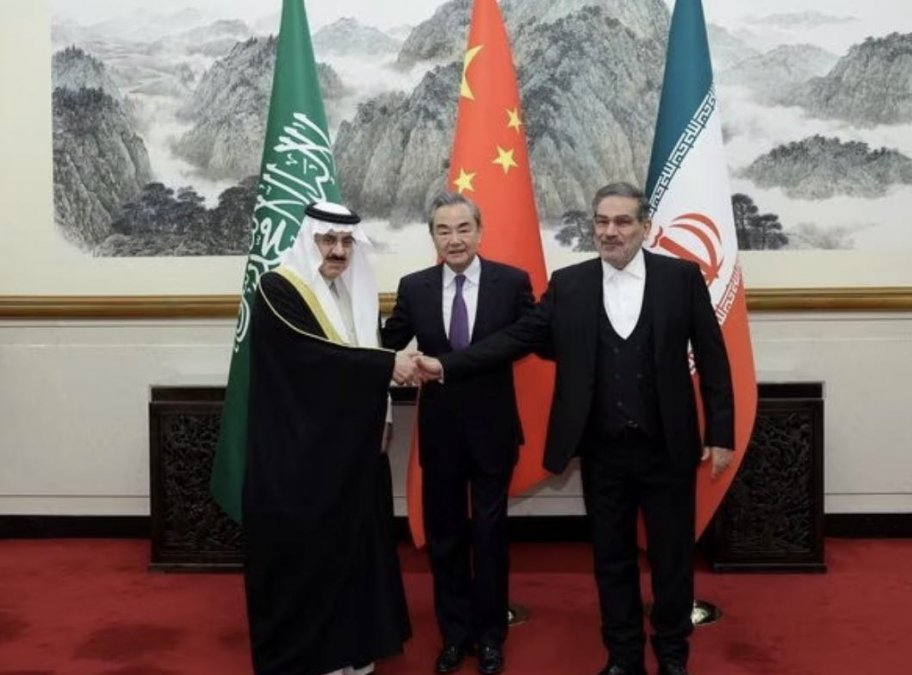What is the impact of the agreement with Saudi Arabia on the economy?
What is the impact of the agreement with Saudi Arabia on the economy? According to Iran Gate, many government supporters, pointing to the sudden drop in the dollar rate following the news of the agreement between Tehran and Riyadh, consider this event a sign of improvement in the country’s economic situation in the short term. But can such an agreement resolve the numerous economic issues of Iran and alleviate the people’s problems in the current situation?
Although the exact details of the agreement between the Islamic Republic and Saudi Arabia have not yet been released, considering Beijing’s central role in this agreement, it seems unlikely that Iran will emerge as the winner of the negotiations.
Of course, this agreement does not have an economic aspect and mainly deals with the political issues and conflicts between the parties. However, given the developments caused by the announcement of this agreement in domestic markets, many believe that its side effects are more important to the people than its content.
Earthquake in Ferdowsi and the boast of the Minister
As mentioned, last week the dollar rate took a downward path influenced by political developments in the region, returning to the range of 43,000 tomans. Although Ehsan Khandoozi claimed that the dollar rate decreased by 40% during this period, it is clearly possible to prove the inaccuracy of this claim.
With a simple rough calculation, it can be understood that the currency price from the moment this news was published at 57,000 tomans to the moment Khandoozi made his claim at 43,000 tomans has a difference of about 14,000 tomans. In other words, it can be said that the currency rate during the period mentioned by the Minister of Economy of Ebrahim Raisi’s government decreased by about 20% and not 40%.
Why didn’t the prices of consumer goods decrease?
Now, if we accept that the currency rate is supposed to remain in the current range of 46,000 tomans and the Raisi government’s claim of controlling the dollar is true, the question arises as to why the prices of consumer goods do not follow this sharp and sudden decrease in the currency rate.
In other words, people are puzzled as to why after the dollar became expensive and the currency rate rose to 61,000 tomans, the prices of consumer goods in the market skyrocketed, but now that the dollar has faced more than a 20% decrease, no reduction in the prices of consumer items is observed.
The answer to this question is very clear. Economists, in such situations, refer to the concept of price stickiness, evaluating consumer goods markets regardless of any financial market excitements. In other words, experts believe that when the market takes a price increase path influenced by various variables like the currency rate, it cannot be expected to change its course with the slightest correction in the currency rate and witness a decrease in consumer goods prices.
The market does not trust the government
Economists believe that this phenomenon, known as price stickiness, is a resistance that the market shows against emotional fluctuations in financial markets. In other words, the consumer goods market does not have enough trust in the stability of the factor reducing the currency rate and naturally refrains from any price reduction.
In simpler terms, it can be said that the market is skeptical about the sustainability of the agreement made between Saudi Arabia and the Islamic Republic. As a result, it does not believe in the stability of the currency rate within the range claimed by the Raisi government, and it is expected that soon the dollar price will return to the previous 50,000-toman channel range.
This is why it is said that the market does not trust the government’s promises and has its own natural mechanisms, especially after the rejection of the Islamic Republic’s claims by the Biden administration regarding the agreement for prisoner exchange. The market’s trust in the government officials and Ebrahim Raisi has reached its lowest level. For this reason, experts believe that this agreement will not solve the livelihood issues of the ordinary people in the country.
Rejection of another claim
The Raisi government also claims that this agreement will facilitate Iran’s oil exports and increase the country’s foreign exchange revenues, an event that, if it occurs, would mean covering the government’s budget deficit from non-inflationary revenues, and naturally, people would benefit from its results.
However, experts believe that this claim also does not seem very accurate. The key to solving this ambiguity lies in the recent announcements and actions of the Ministry of Oil. Javad Owji recently announced the offering of oil futures bonds in the Tehran Stock Exchange and called it a government achievement. Apart from the fact that this plan was unveiled in September 2020 by Hassan Rouhani, resorting to the implementation of such a plan signifies the government’s readiness to intensify oil export restrictions.
In other words, when the government intends to implement the oil bonds plan, it practically hands over the oil to non-governmental individuals and entities to continue exporting in this way. The meaning of this action also shows the incorrectness and baselessness of the claims made about the imminent increase in oil exports following the agreement with Riyadh. Therefore, it is said that neither on a macro scale nor on a micro scale can it be expected that the agreement of the Islamic Republic with Saudi Arabia will perform miracles and relieve the burden from the shoulders of ordinary people.

